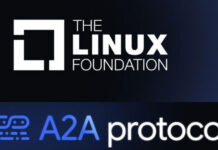IBL News | New York
openSAP announced this month it attracted five million course enrollments and 1.2 million learners on its platform – a free webspace that offers micro-learning and expert-led courses, as well as podcasts. In the last three years, the number of course enrollments doubled.
Established in 2013, the openSAP platform mostly provides essential knowledge on SAP, such as SAP S/4HANA, and SAP Business Technology Platform, along with topics such as intelligent integration, digital transformation, and machine learning. It includes approximately 250 courses with an average of 20,000 enrollments per class. Gamification and discussion forums are part of the platform.
“Our goal is to ensure that everyone in our ecosystem – customers, partners, developers, and employees – all have the right skills to thrive in a digital world,” said Maxwell Wessel, EVP, and Chief Learning Officer, SAP.
Training through micro-learning is the shiny new trend, although the concept started in the mid-1990s. It is quickly becoming a staple of training programs. For example, Deloitte Australia announced a mobile training system with small digital courses for its 10,500 employees.
The consultancy firm uses the EdApp micro-learning platform, which offers “bite-size learning” downloaded directly to employees’ smartphones. Jennifer Siu, Deloitte’s Manager for Leadership and Learning, explained it in a series of videos.
Quick, engaging, and entertaining content provides learners with short pieces of information instead of watching hours of monotonous videos. Learning science probes that digestible pieces of content aligned with spaced repetition increase retention.
Micro-learning and Nano-learning are effective ways to deliver knowledge not only to Generation Z‘s students — who grew up with smartphones and are used to soundbites on YouTube, Tik Tok, and Snapchat — but increasingly to corporate audiences.
This is forcing many corporations to rethink their learning, credentialing, and assessment approaches.

 En Español
En Español





















